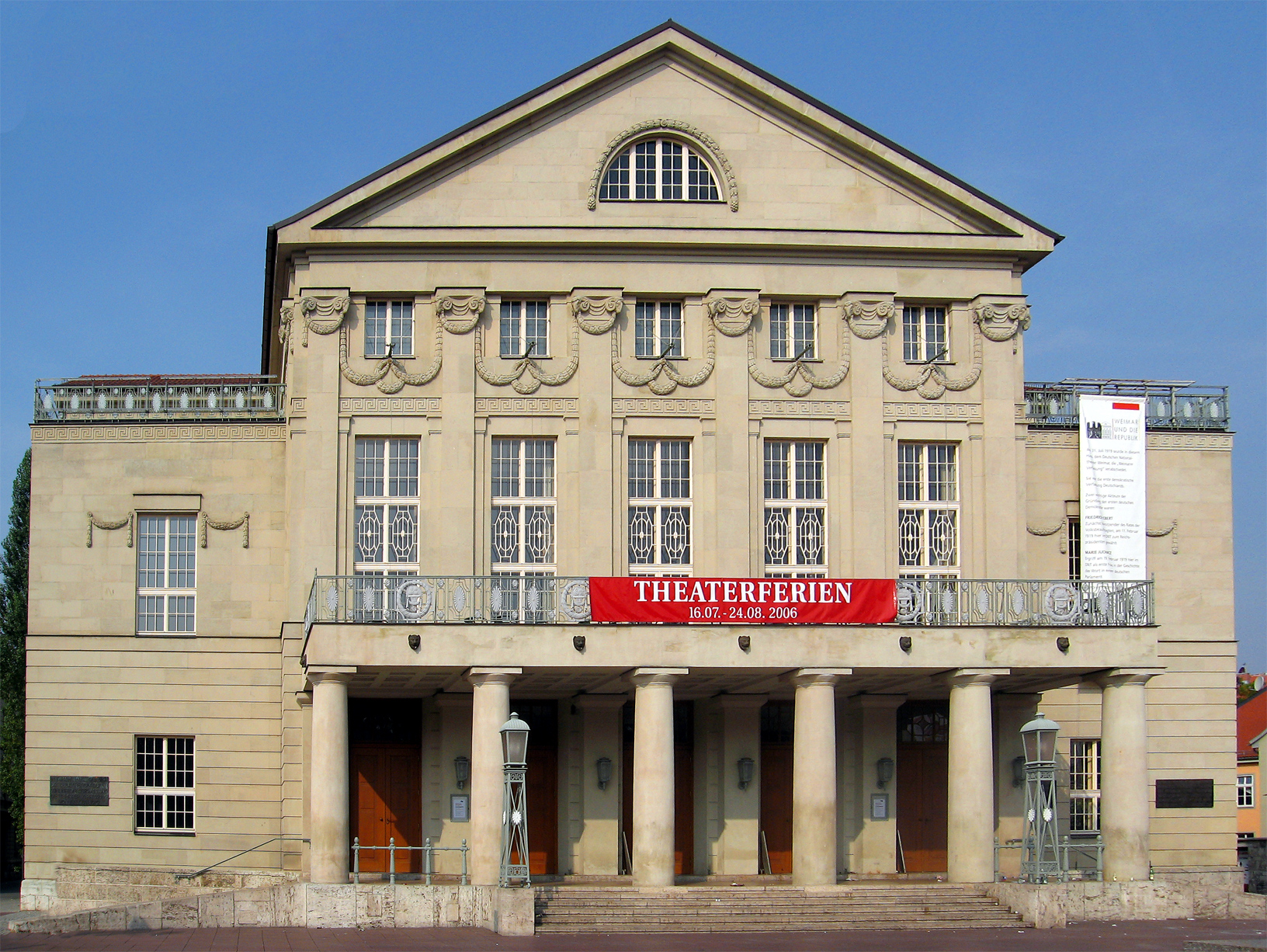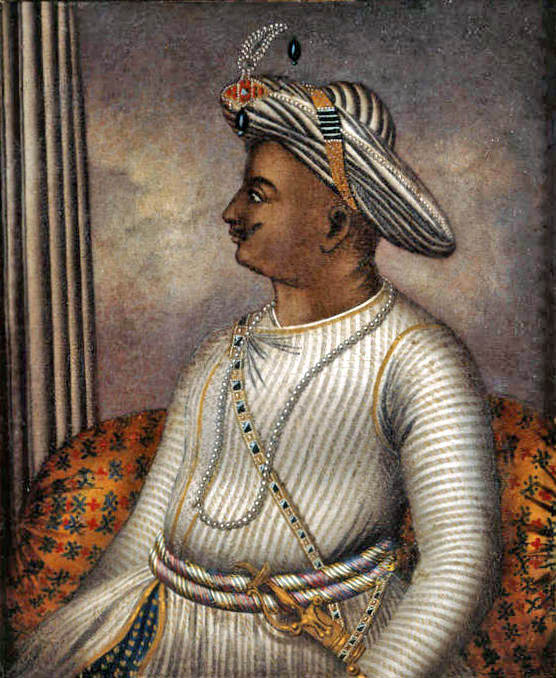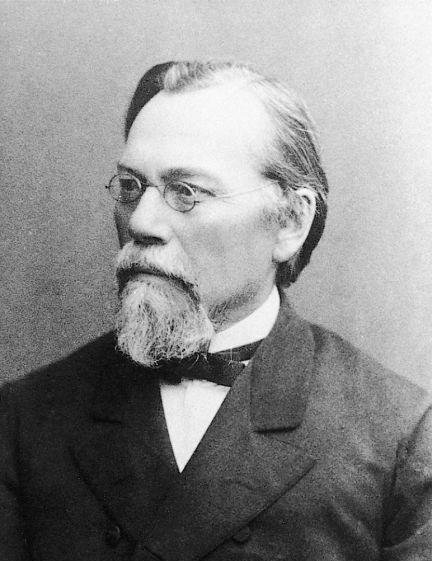|
Franz Kirms
Franz Kirms (21 December 1750 – 3 May 1826) was the official comrade of Johann Wolfgang von Goethe in the management of the Weimar Theatre and as a flower lover. He was born in the Holy Roman Empire. Life Kirms came from a family of civil servants who lived since 1701 in a house built around 1520 in Jakobstraße 10. He was a tax official from 1789 and from 1814 Privy Councillor in Weimar. Duke Karl August, Grand Duke of Saxe-Weimar-Eisenach entrusted him with the supervision of the Hofmarschall- and Stallamt. Besides, Kirms was a passionate flower lover to whom Duke Carl August handed over rare plants from his travels for breeding. Since 1791 he supported Goethe at the Theaterintendanz. He was in charge of the actual business administration of the Weimar Theatre, which he led very skilfully and energetically after Goethe's retirement together with Count Albert Cajetan von Edling until his death. In 1808 the theater laws were published. Goethe valued highly his performance. O ... [...More Info...] [...Related Items...] OR: [Wikipedia] [Google] [Baidu] |
Johann Wolfgang Von Goethe
Johann Wolfgang (von) Goethe (28 August 1749 – 22 March 1832) was a German polymath who is widely regarded as the most influential writer in the German language. His work has had a wide-ranging influence on Western literature, literary, Political philosophy#European Enlightenment, political, and Western philosophy, philosophical thought in the Western world from the late 18th century to the present.. A poet, playwright, novelist, scientist, statesman, theatre-director, and critic, Johann Wolfgang von Goethe bibliography, his works include plays, poetry and aesthetic criticism, as well as treatises on botany, anatomy, and colour. Goethe took up residence in Weimar in 1775 following the success of his first novel, ''The Sorrows of Young Werther'' (1774), and joined a thriving intellectual and cultural environment under the patronage of Duchess Anna Amalia of Brunswick-Wolfenbüttel, Duchess Anna Amalia that formed the basis of Weimar Classicism. He was ennobled by Karl August, G ... [...More Info...] [...Related Items...] OR: [Wikipedia] [Google] [Baidu] |
Deutsches Nationaltheater And Staatskapelle Weimar
The (DNT), or German National Theater and Weimar State Orchestra, is the most significant arts organization in Weimar. The institution unites the (German National Theater) with the (Weimar State Orchestra). It plays on a total of six stages across the city. All sections of the theater and orchestra periodically give additional guest performances and appear in electronic media. Venues # Main House ('), traditional main stage on Theaterplatz (music and theatre) # Foyer and Studio Stage ('), within the main house on Theaterplatz (music and theatre; cabaret) # ''E-Werk Weimar'', a former industrial site with two venues, ' and ' (music and theatre) # ' (concerts by the Staatskapelle Weimar) The Staatskapelle Weimar History The precursor ensemble of Staatskapelle Weimar dates from 1482, with the formation of a musical ensemble in service of the Weimar ''Fürsten'' (Princes). In 1602, the ensemble attained resident status at the Weimar court, as the ''Herzoglichen Hofkapelle'' ( ... [...More Info...] [...Related Items...] OR: [Wikipedia] [Google] [Baidu] |
Holy Roman Empire
The Holy Roman Empire, also known as the Holy Roman Empire of the German Nation after 1512, was a polity in Central and Western Europe, usually headed by the Holy Roman Emperor. It developed in the Early Middle Ages, and lasted for a millennium until its Dissolution of the Holy Roman Empire, dissolution in 1806 during the Napoleonic Wars. For most of its history the Empire comprised the entirety of the modern countries of Germany, Czechia, Austria, the Netherlands, Belgium, Switzerland, Slovenia, and Luxembourg, most of north-central Italy, and large parts of modern-day east France and west Poland. On 25 December 800, Pope Leo III crowned the Frankish king Charlemagne Roman emperor, reviving the title more than three centuries after the fall of the Western Roman Empire in 476. The title lapsed in 924, but was revived in 962 when Otto I, OttoI was crowned emperor by Pope John XII, as Charlemagne's and the Carolingian Empire's successor. From 962 until the 12th century, the empire ... [...More Info...] [...Related Items...] OR: [Wikipedia] [Google] [Baidu] |
Weimar
Weimar is a city in the state (Germany), German state of Thuringia, in Central Germany (cultural area), Central Germany between Erfurt to the west and Jena to the east, southwest of Leipzig, north of Nuremberg and west of Dresden. Together with the neighbouring cities of Erfurt and Jena, it forms the central metropolitan area of Thuringia, with approximately 500,000 inhabitants. The city itself has a population of 65,000. Weimar is well known because of its cultural heritage and importance in German history. The city was a focal point of the German Enlightenment and home of the leading literary figures of Weimar Classicism, Johann Wolfgang von Goethe and Friedrich Schiller. In the 19th century, composers such as Franz Liszt made Weimar a music centre. Later, artists and architects including Henry van de Velde, Wassily Kandinsky, Paul Klee, Lyonel Feininger, and Walter Gropius came to the city and founded the Bauhaus movement, the most important German design school of the int ... [...More Info...] [...Related Items...] OR: [Wikipedia] [Google] [Baidu] |
Karl August, Grand Duke Of Saxe-Weimar-Eisenach
Karl August, sometimes anglicised as Charles Augustus (3 September 1757 – 14 June 1828), was the sovereign Duke of Saxe-Weimar and of Saxe-Eisenach (in personal union) from 1758, Duke of Saxe-Weimar-Eisenach from its creation (as a political union) in 1809, and grand duke from 1815 until his death. He is noted for the intellectual brilliance of his court.Ulich, Robert, ''The Education of Nations'', Harvard University Press, Cambridge, Mass. 1961, p.193 Biography Born in Weimar, he was the eldest son of Ernst August II, Duke of Saxe-Weimar and Saxe-Eisenach (Ernest Augustus II), and Duchess Anna Amalia of Brunswick-Wolfenbüttel. His father died when he was only nine months old ( 28 May 1758), and the boy was brought up under the regency and supervision of his mother. His governor was the Count Johann Eustach von Görtz and in 1771, Christoph Martin Wieland was appointed his tutor. In 1774 the poet Karl Ludwig von Knebel came to Weimar as tutor to his brother, the young Pri ... [...More Info...] [...Related Items...] OR: [Wikipedia] [Google] [Baidu] |
Grand Duchess Maria Pavlovna Of Russia (1786–1859)
Maria Pavlovna (; – ) was a grand duchess of Russia as the daughter of Paul I, Emperor of all the Russias and Empress Maria Feodorovna and later became the Grand Duchess of Saxe-Weimar-Eisenach by her marriage to Charles Frederick of Saxe-Weimar-Eisenach (1783–1853). Early life Grand Duchess Maria Pavlovna Romanova of Russia was born on 16 February 1786 in Saint Petersburg as the fifth child and third daughter of Tsesarevich Paul Petrovich of Russia and his second wife, Tsesarevna Maria Feodorovna (1754–1801), born Duchess Sophie Dorothea of Württemberg (1759–1828). She was named after her mother. Maria Pavlovna spent her childhood in the Pavlovsk Palace and the Great Gatchina Palace. As a child, she was not considered pretty as her face had been disfigured as a result of being variolated. She was a talented pianist, for which her paternal grandmother, Catherine the Great (1729–1796) admired her, even though she thought that Maria Pavlovna would have ... [...More Info...] [...Related Items...] OR: [Wikipedia] [Google] [Baidu] |
WorldCat
WorldCat is a union catalog that itemizes the collections of tens of thousands of institutions (mostly libraries), in many countries, that are current or past members of the OCLC global cooperative. It is operated by OCLC, Inc. Many of the OCLC member libraries collectively maintain WorldCat's database, the world's largest bibliographic database. The database includes other information sources in addition to member library collections. OCLC makes WorldCat itself available free to libraries, but the catalog is the foundation for other subscription OCLC services (such as resource sharing and collection management). WorldCat is used by librarians for cataloging and research and by the general public. , WorldCat contained over 540 million bibliographic records in 483 languages, representing over 3 billion physical and digital library assets, and the WorldCat persons dataset ( mined from WorldCat) included over 100 million people. History OCLC was founded in 1967 under the leade ... [...More Info...] [...Related Items...] OR: [Wikipedia] [Google] [Baidu] |
Suhrkamp Verlag
Suhrkamp Verlag is a German publishing house, established in 1950 and is generally acknowledged as one of the leading European publishers of fine literature. Its roots go back to the "arianized" part of the S. Fischer Verlag. In January 2010, the headquarters of the company moved from Frankfurt to Berlin. Suhrkamp declared bankruptcy in 2013, following a longstanding legal conflict between its owners. In 2015, economist Jonathan Landgrebe was announced as director. Early history The firm was established by Peter Suhrkamp, who had led the equally renowned S. Fischer Verlag since 1936. As the censorship of the Nazi regime endangered the existence of the S. Fischer Verlag with its many dissident authors, Gottfried Bermann Fischer in 1935 reached an agreement with the Propaganda Ministry under which the publication of the not accepted authors would leave Germany while others, the "aryanized" part, would be published under Peter Suhrkamp as managing director and, inter alia, the ... [...More Info...] [...Related Items...] OR: [Wikipedia] [Google] [Baidu] |
German Theatre Directors
German(s) may refer to: * Germany, the country of the Germans and German things **Germania (Roman era) * Germans, citizens of Germany, people of German ancestry, or native speakers of the German language ** For citizenship in Germany, see also German nationality law German nationality law details the conditions by which an individual is a national of Germany. The primary law governing these requirements is the Nationality Act, which came into force on 1 January 1914. Germany is a member state of the Euro ... **Germanic peoples (Roman era) *German diaspora * German language * German cuisine, traditional foods of Germany People * German (given name) * German (surname) * Germán, a Spanish name Places * German (parish), Isle of Man * German, Albania, or Gërmej * German, Bulgaria * German, Iran * German, North Macedonia * German, New York, U.S. * Agios Germanos, Greece Other uses * German (mythology), a South Slavic mythological being * Germans (band), a Canadian rock b ... [...More Info...] [...Related Items...] OR: [Wikipedia] [Google] [Baidu] |
1750 Births
Various sources, including the Intergovernmental Panel on Climate Change, use the year 1750 as a baseline year for the end of the pre-industrial era. 1750 is commemorated as the year that started the Industrial Revolution, although the underpinnings of the Industrial Revolution could have started earlier. Events January–March * January 13 – The Treaty of Madrid between Spain and Portugal authorizes a larger Brazil than had the Treaty of Tordesillas of 1494, which originally established the boundaries of the Portuguese and Spanish territories in South America. * January 24 – A fire in Istanbul destroys 10,000 homes. * February 15 – After Spain and Portugal agree that the Uruguay River will be the boundary line between the two kingdoms' territory in South America, the Spanish Governor orders the Jesuits to vacate seven Indian missions along the river (San Angel, San Nicolas, San Luis, San Lorenzo, San Miguel, San Juan and San Borja). * March 5 &nd ... [...More Info...] [...Related Items...] OR: [Wikipedia] [Google] [Baidu] |
1826 Deaths
Events January–March * January 15 – The French newspaper ''Le Figaro'' begins publication in Paris, initially as a satirical weekly. * January 17 – The John Ballantyne (publisher), Ballantyne printing business in Edinburgh (Scotland) crashes, ruining novelist Sir Walter Scott as a principal investor. He undertakes to repay his creditors from his writings. His publisher, Archibald Constable, also fails. * January 18 – In India, the Siege of Bharatpur (1825–1826), Siege of Bharatpur ends in British victory as Stapleton Cotton, 1st Viscount Combermere, Lord Combermere and Michael Childers defeat the Bharatpur State, princely state of Bharatpur, now part of the Indian state of Rajasthan. * January 30 – The Menai Suspension Bridge, built by engineer Thomas Telford as the first major suspension bridge in world history, is opened between the island of Anglesey and the mainland of Wales. * February 6 – James Fenimore Cooper's novel ''The Last of the Mohicans'' is ... [...More Info...] [...Related Items...] OR: [Wikipedia] [Google] [Baidu] |






